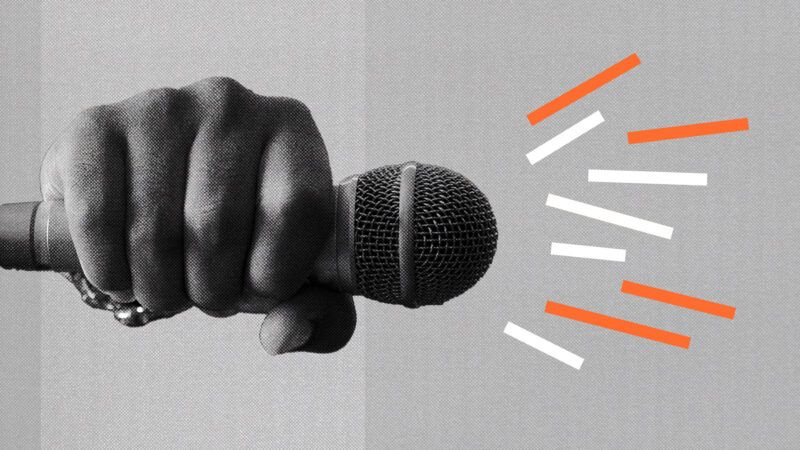Rapper B.G. Ordered To Turn Over New Song Lyrics to the Feds
Supervised release shouldn't require former inmates to give up their First Amendment rights.

Last week, a federal judge ruled that B.G., a rapper known for the hit 1999 song "Bling Bling," must give the government copies of the lyrics to any new songs as a condition of his supervised release. While prosecutors can generally place a wide range of otherwise illegal restrictions on released prisoners' conduct, critics argue this restriction is an unconstitutional prior restraint on speech.
In 2012, B.G., whose real name is Christopher Dorsey, was sentenced to 14 years in prison for illegal gun possession and obstruction charges. After serving 11 years, Dorsey was released in February. In May, prosecutors filed a motion alleging that Dorsey had violated the terms of his bond by publishing songs "where he once again glorifies murder, drug dealing, and threatens those who cooperate with the police."
"Mr. Dorsey's conduct directly contradicts the goals of supervised release—rehabilitation and becoming a responsible, law-abiding member of our community," prosecutors write. "There is no way that any reasonable person can view these new videos…with an understanding of Mr. Dorsey's past, and conclude that Mr. Dorsey was taking his rehabilitation seriously."
Prosecutors requested that Dorsey be prohibited from "promoting and glorifying future gun violence/murder and obstructive conduct in his songs and during his concerts." Last Friday, New Orleans federal judge Susie Morgan denied this request, writing that the condition might be an unconstitutional prior restraint on Dorsey's speech.
"The Court finds that, without question, the additional condition is not sufficiently clear and specific to serve as a guide for the Defendant's conduct and for those entrusted with his supervision," Morgan wrote. But despite this admission, she still placed a serious restriction on Dorsey's speech. "To address the legitimate concerns expressed by the Government, the Court will impose a special condition that the Defendant provide the United States Probation Office with a copy of the lyrics of any song he writes, in advance of his production or promotion of such song, and that those lyrics be shared with the Government."
While this restriction sounds outrageous, supervised release is a convoluted mess for many former prisoners. "When it was created in 1984, federal supervised release was supposed to be used sparingly to keep tabs on offenders who were public safety concerns or needed extra support to transition back into society," Reason's C.J. Ciaramella wrote last month. "However, it's become used by default…and it's sending many others back to prison for minor rule violations that might not warrant such a harsh response."
Even if supervised release requirements are often onerous, some First Amendment experts argue that Dorsey's supervised release requirements are nonetheless unconstitutional prior restraint on speech.
"Courts usually give the government more leeway when it comes to restricting speech in the context of supervised release conditions, but this is not narrowly tailored, and it's not really reasonably related to deterring past criminal conduct or rehabilitation," J.T. Morris, a senior attorney with the Foundation For Individual Rights And Expression, told Reason. "This order asks this artist to turn over the lyrics of any song that he writes. No matter what the content of that song is. And that's just beyond overbroad."


Show Comments (13)